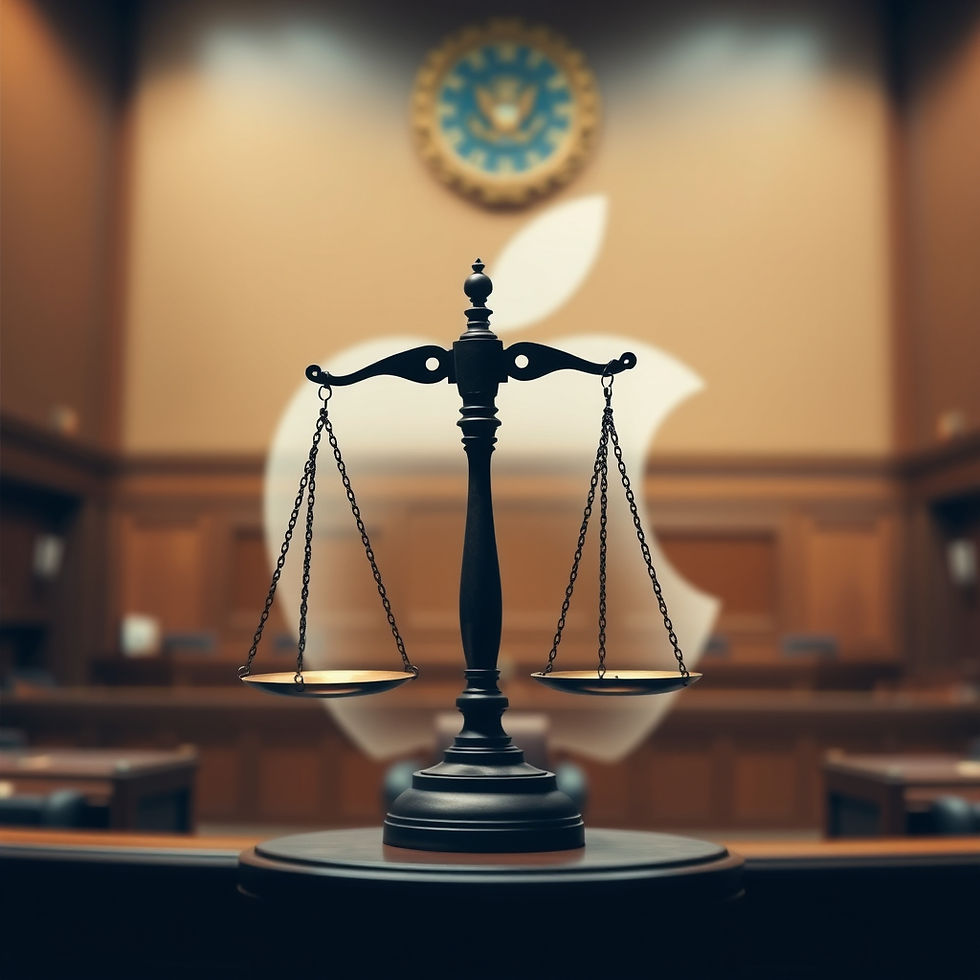AI Compliance Failures: Lessons for Businesses
- Dr. Oludare Ogunlana

- Sep 8, 2025
- 2 min read
By Dr. Sunday Ogunlana — Professor of Cybersecurity and Founder of OSRS, guiding organizations in AI governance, compliance, and digital resilience.

Artificial Intelligence (AI) is changing how companies work. It brings speed, data insight, and automation. But it also brings risk. Around the world, regulators are now issuing fines when AI use breaks laws on safety, privacy, or intellectual property. Organizations must learn from these cases to avoid the same mistakes.
Why AI Should Not Be Regulated Too Much
Some argue that AI should not be heavily regulated. Strict rules can slow down progress. AI drives new tools, jobs, and discoveries. Without room to test and innovate, many of these benefits could be lost. Businesses fear that overregulation will hurt competition and prevent growth. The right balance is needed—guidelines that protect people without blocking innovation.
Compliance Concerns with AI
AI creates new compliance risks. Privacy is one. Many systems collect personal data without clear consent. Safety is another. Chatbots have given harmful advice or exposed children to unsafe content. Intellectual property is also at risk. Several firms have faced lawsuits for using copyrighted books or news articles to train their models without permission. These issues highlight the need for strong governance and clear legal checks.
How AI Helps in Compliance
AI is not only a risk. It can also be a solution. Companies are now using AI to monitor compliance in real time. Algorithms can scan data transfers, check contracts, and flag suspicious activity. This helps organizations meet rules faster and with fewer errors. AI tools also support audits and track risk patterns that humans may miss. With the right safeguards, AI becomes a partner in staying compliant.
The Major Challenge in Applying AI for Compliance
The biggest challenge is trust. Many AI systems are a “black box.” Users cannot always explain how the system reached a decision. This creates problems when regulators ask for proof or when bias appears in results. Transparency and accountability are still weak in many tools. Without solving this, AI will struggle to win acceptance in compliance functions.
What OSRS Can Do to Help
At OGUN Security Research and Strategic Consulting (OSRS), we support organizations facing these AI challenges. We provide regulatory compliance and legal advisory services to help you understand and meet global standards. Our training and certification programs prepare your teams to use AI responsibly.
We offer strategic intelligence and security research to assess risks before they harm your business. Our digital and cyber investigations uncover misuse of AI or data breaches. We also provide corporate and financial investigations to address fraud or misuse of sensitive data. Finally, our cybersecurity consulting and advisory services strengthen your overall defenses.
OSRS blends expertise in cybersecurity, privacy, and AI governance. We help organizations stay safe, build trust, and avoid the costly penalties that others have faced.
About the Author
Dr. Sunday Oludare Ogunlana is a cybersecurity professor and founder of OGUN Security Research and Strategic Consulting (OSRS). He is an expert in AI governance, privacy, and cyber resilience, helping organizations build trust, ensure compliance, and strengthen digital defenses.




Comments